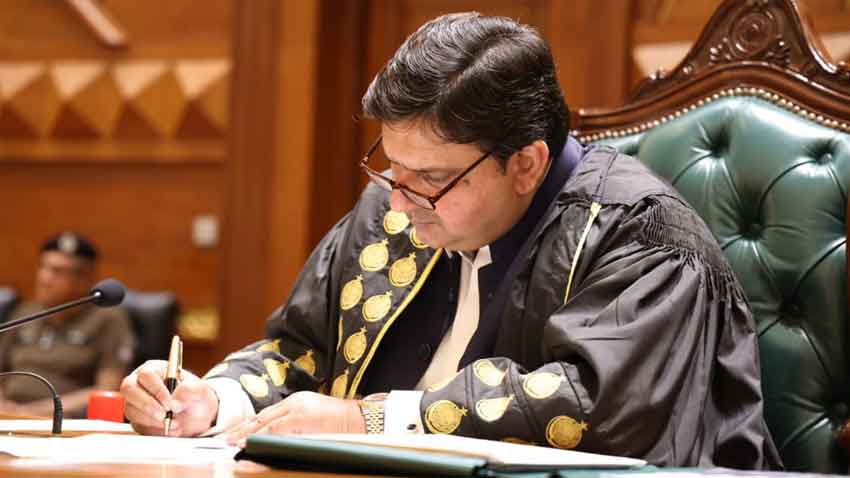
After the reinstatement of the suspended members, Speaker Malik Muhammad Ahmad Khan announced his final verdict in the Assembly. The ruling, released by the Assembly Secretariat, highlighted critical questions about democracy and the right to representation.
In his ruling, the Speaker declared that disqualifying an elected representative is not just silencing one voice but depriving the people of their right to be represented. He stressed that the petitions filed by various lawmakers, including Punjab’s Finance and Parliamentary Affairs Minister, touch the very roots of modern democracy.
He asked a direct question: Can elected representatives be disqualified by the Speaker or the Election Commission? His own reply was firm – “No.” The petitioners had accused the opposition members of violating constitutional oaths and committing serious legal breaches.
The Speaker noted that such violations must first be proven in a competent court or tribunal. Only then can the question of disqualification under Article 63(2) of the Constitution arise, and only then could the matter be forwarded to the Election Commission of Pakistan.
Rejecting the reliance on precedents like the Panama Papers case and disqualification rulings under Articles 199 and 184(3), he said these could not be applied here due to constitutional and democratic reasons.
Read more: PM Shehbaz to attend emergency Arab-Islamic summit in Qatar today
The Speaker reminded the Assembly that an elected House is not only a lawmaking body but also the true voice of the people’s trust. Silencing that voice without a judicial verdict, he added, would be an insult to the principle of public representation. Petitioners, however, could approach a court and then return to the Speaker with a ruling.
The ruling also revealed that the issue stemmed from violent and organized disruptions caused by opposition members during the budget session. Four separate petitions were filed, arguing that the opposition’s deliberate disruption of proceedings and defiance of the Speaker’s ruling amounted to contempt of constitutional oath and violated Article 62 on parliamentary eligibility.
Malik Muhammad Ahmad Khan concluded that the issues raised were of immense constitutional and political importance but could only be settled through judicial authority, not through the Speaker’s discretion.




